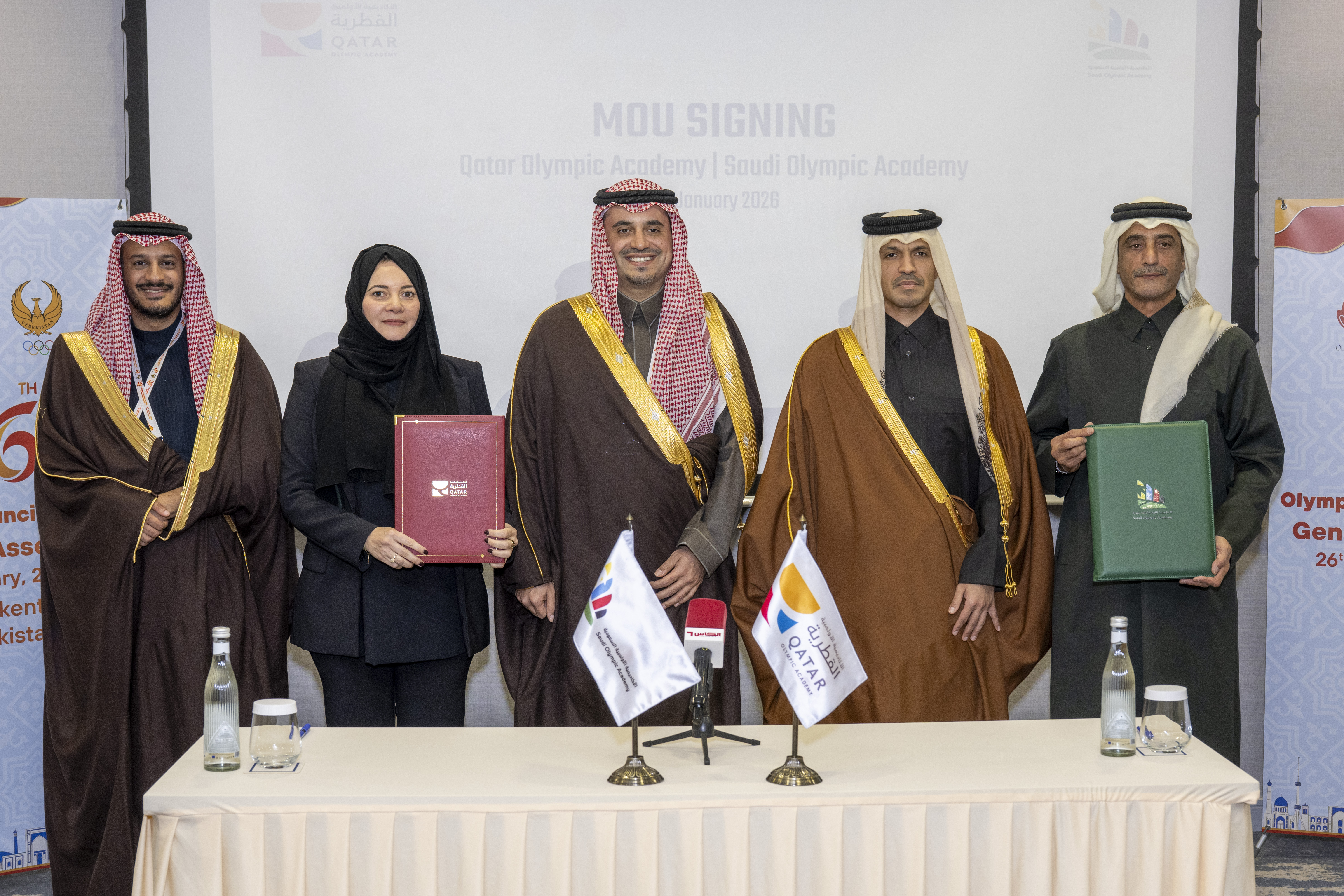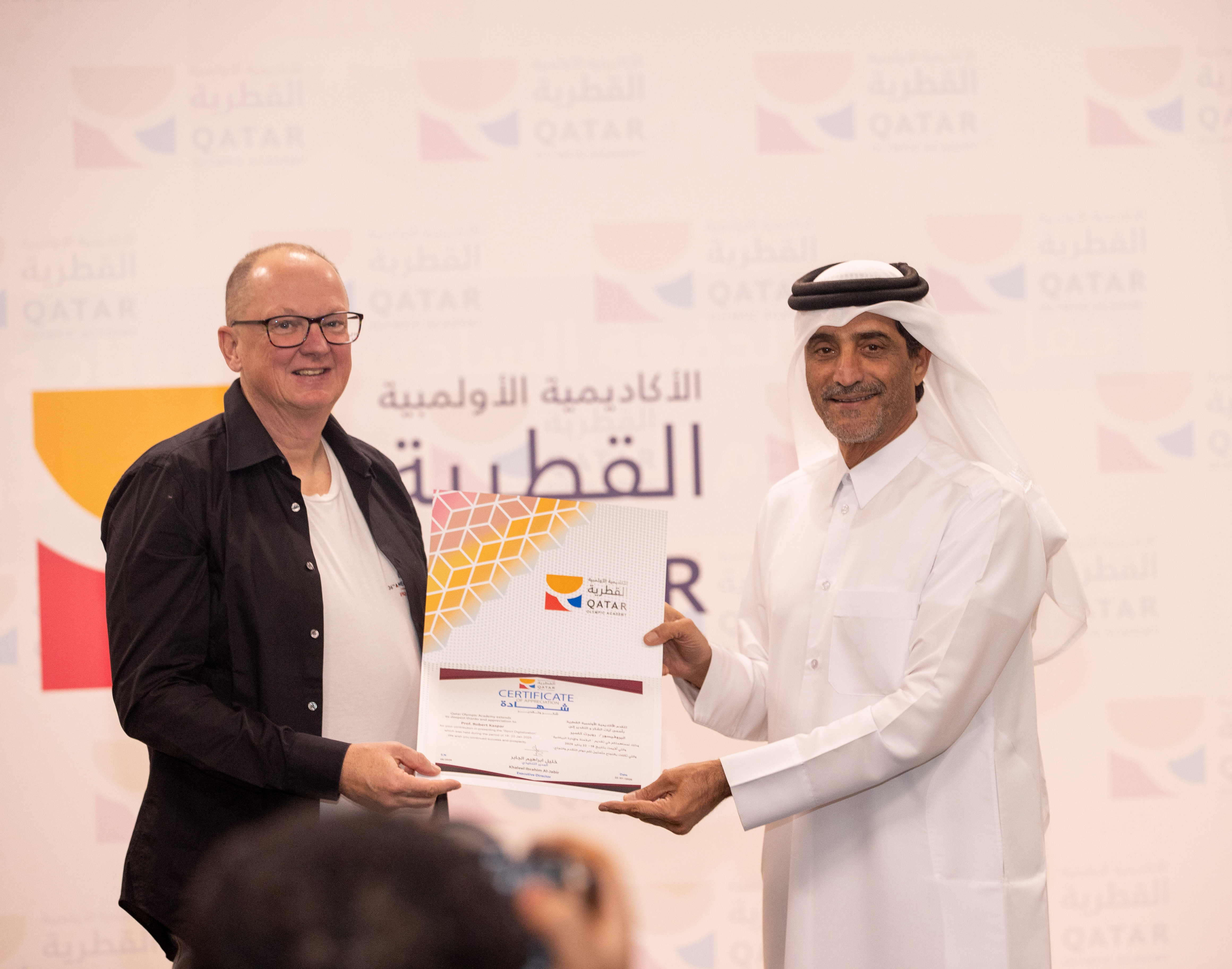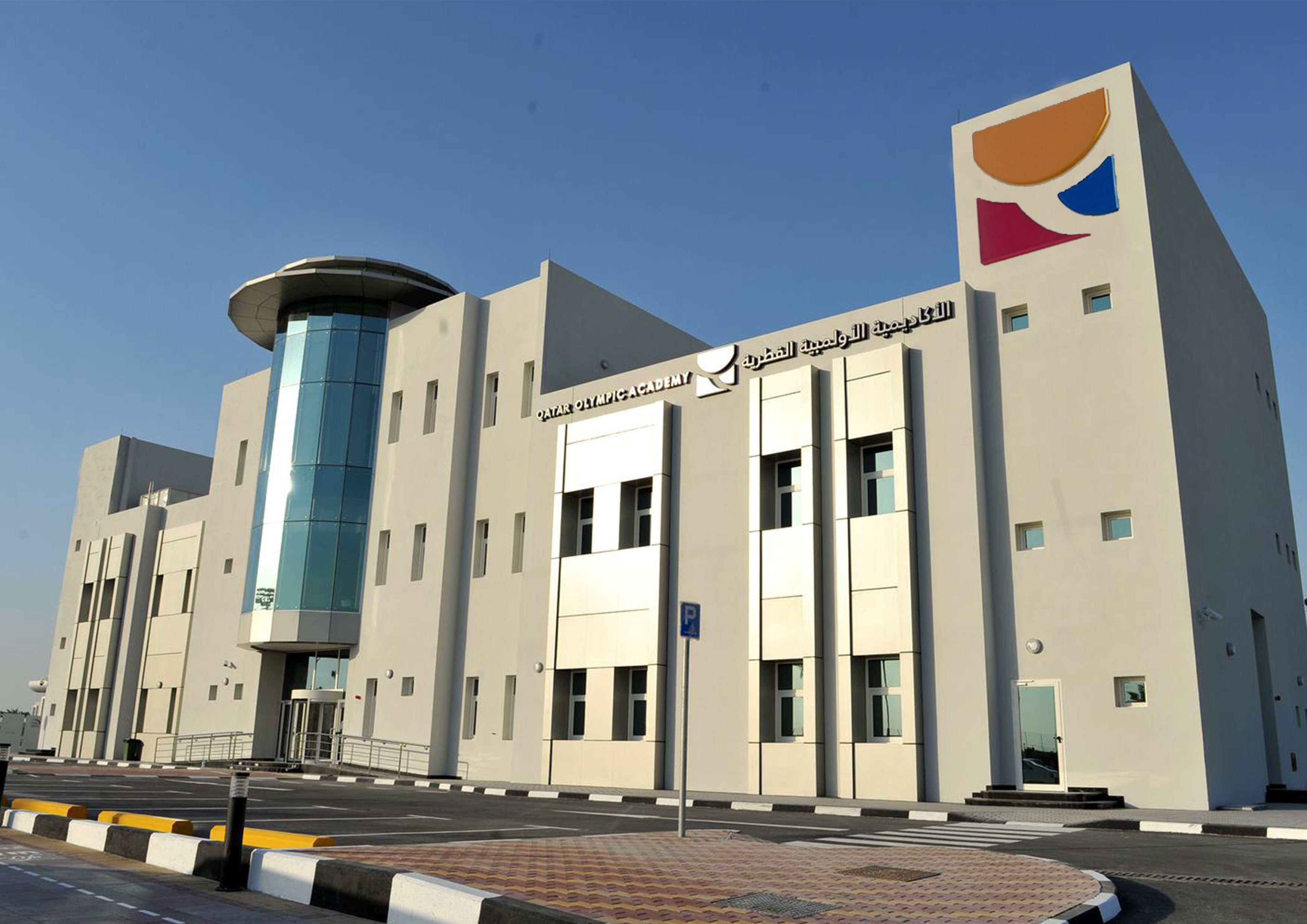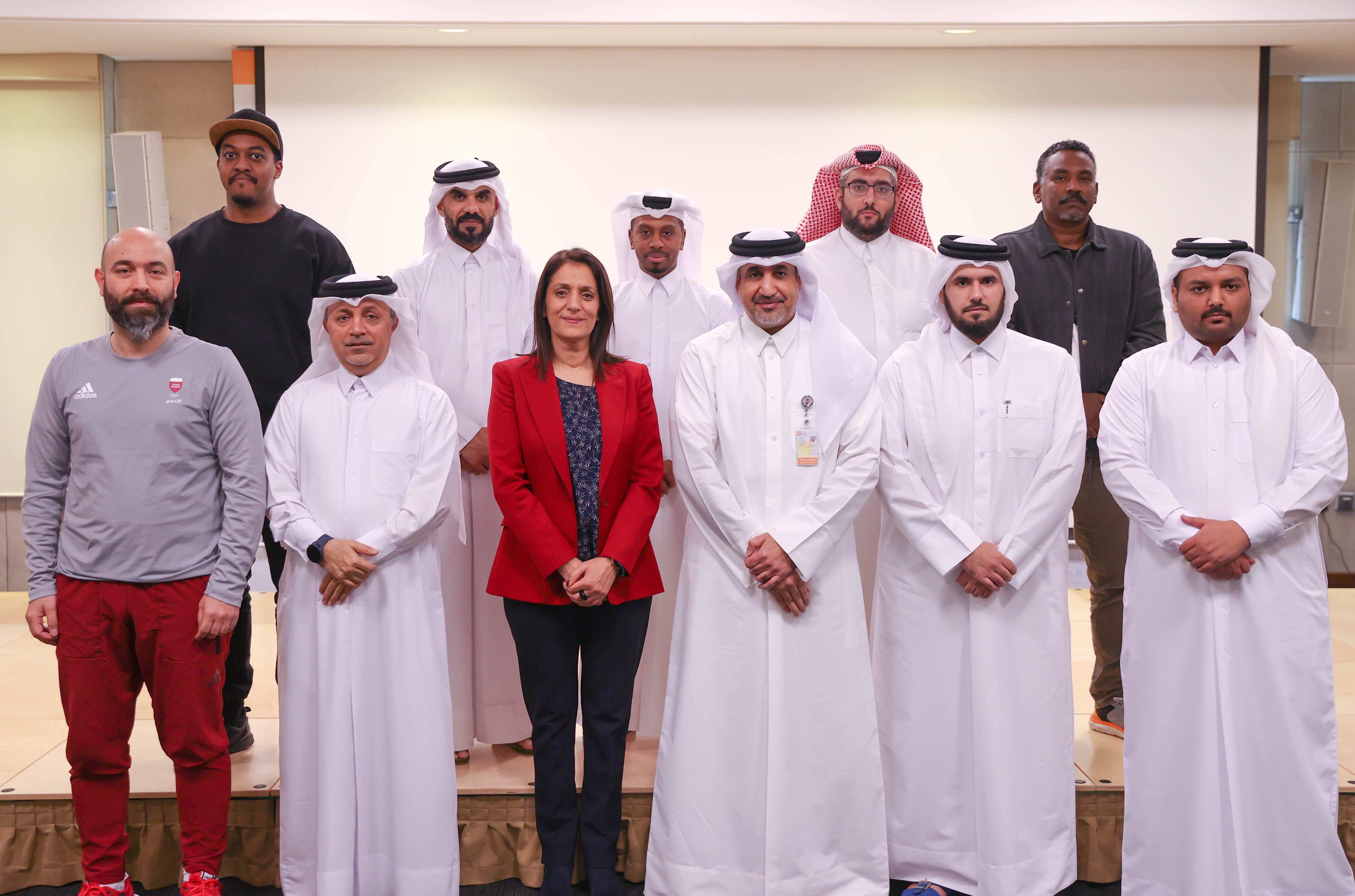Doha - February 27, 2022:
The course lasted for five days from February 20 to 24 with the participation of a number of students from many different sports and administrative disciplines.
The course was presented by Dr. Maha Zawawi, Advisor to the Minister of Youth and Sports of the Republic of Tunisia, a university professor at the Faculty of Physical Education at The University of Jandouba, as well as a former president of the Tunisian Olympic Academy and a former member of the Executive Office of the Tunisian Olympic Committee.
Dr. Maha spoke on the first day about the concepts of sports management, which is known as the art of coordinating the elements of work and sports products in sports bodies and directing it in order to achieve these bodies and direct all efforts within the sports body to achieve its goals, as the goals are also required to be determined in the sports administration, but there are other important elements representing the pillars of any successful sports administrative work.
On the second day, she also spoke about the founding of the Olympic Movement and the Modern Olympic Games (Olympic History), where the organization of the old Olympic Games began in Olympia, Greece in the 8th century BC until the fifth century AD and then the organization of the modern Summer Olympics, which is in its current form in 1896 at the initiative of Frenchman Pierre de Coubertin, president of the International Olympic Committee and founder of the modern Olympic movement, where 241 players from 14 countries competed in the Nine games and 43 competitions.
The Games were interrupted during world war I as well as during the Second World War, after which they witnessed a development during the twentieth century, reflected in the establishment of the Winter Olympics for ice and snow sports, the Paralympic Games and the Olympic Games for young athletes.
Global social, economic and technological changes have affected the course of the Olympic Games, which were for amateur athletes to become open to professionals, leading to increased media interest and expanded marketing through increased sponsorship by large companies.
On the third day, I spoke about the Charter and Olympic Values, which is the Constitution of the Work of the Olympic Movement and the Organization of the Olympic Games, which is the whole of the provisions and laws approved by the International Olympic Committee, and in the event of a dispute or disagreement over the interpretation or application of these resolutions, they are decided by the Executive Office of the International Olympic Committee.
In some cases, it is adjudicated by arbitration before the CAS Sports Arbitration Tribunal, established in 1993 and consists of 20 judges and is a supreme body independent of the International Olympic Committee.
On the fourth day, the focus of the lecture was on administrative skills and steps to develop administrative and sports cadres, which reflect positively on the achievements achieved by sports federations, both in professional sports and in community sports and the dissemination of sports among the community.
On the last day, a test was conducted for learners in addition to the last lecture on planning and resource management in sports institutions.
It is worth mentioning that this course is considered the first part of the diploma program of sports management while the second part will be under the name of the modern management course of Olympic sports institutions at the end of September, which talks about a number of related topics, especially management skills in the field of sports such as the benefits of good communication and effective communication, as well as the management of the working environment, management of time in sports institutions, and the importance of time management in addition to other topics, most notably technical management and management of activities and events as well as Management of human resources.
More news

Qatari Olympic Academy Signs Memorandum of Understanding with Saudi Olympic Academy
Tashkent - Uzbekistan – January 26, 2026: The 46th Asian Olympic Council meeting in Tashkent, Uzbekistan, witnessed the signing of an important memorandum of understanding between the Qatari Olympic Academy and the Saudi Olympic Academy, in a step that enhances regional and Gulf sports cooperation. The agreement, signed by the Qatari Olympic Academy with the Saudi Olympic Academy, aims to strengthen cooperation in the field of developing sports training cadres.

Conclusion of the "Digitalization and Sports Management" course
As part of its ambitious strategy to develop sports and administrative cadres, the Qatar Olympic Academy held a specialized training course titled "Digitalization and Sports Management," marking the first of its diverse programs included in the new year's 2026 agenda. The course was presented by Dr. Robert Kasper, Assistant Professor in Sports Management at Schloss Seeburg University in Austria, amid diverse participation from those interested in sports affairs in the State of Qatar and the region as a whole.

The Agenda Included Numerous Programs, Courses, and Workshops in Various Fields
Doha: The Qatar Olympic Academy announced the launch of its agenda for programs and courses for the new year 2026, which included numerous programs, courses, and workshops in various sports and Olympic fields, exceeding seventeen programs, whether in the area of Olympic education workshops, diverse courses, or postgraduate studies in cooperation with a number of international and regional entities.

